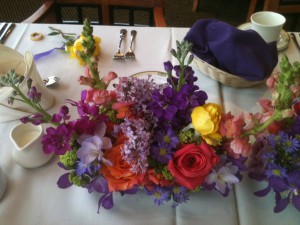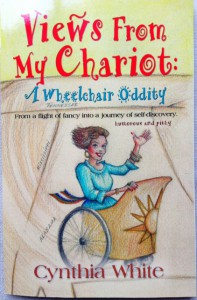This is an excerpt from my ebook that you can instantly download FREE with your subscription to my ezine. COMING SOON!
When I was five or six years old, someone asked me what I wanted to be when I grew up. Without hesitation, I said, “A boy.” As adults, we laugh at children’s cute misconceptions. We know it isn’t going to happen. Then, somewhere amidst the journey from innocence into adulthood, the majority of us arrive unfulfilled, bothered and bewildered of the cause. We wonder: How did I get off my path? What is my calling? What is my purpose?
Carolyn Weiss says it best. She says it’s never too late to get back on your life path. If you are alive and breathing, you have a purpose.
I have always been an explorer, much like my Daniel Boone-esque, frontiersman, explorer dad. (You can read the wild stories about him in my book, particularly the “That Was Then” chapter.) Back in my walking days, I spent endless hours exploring concealed paths off country dirt roads, ambling amidst woods, discovering hidden swimming holes, and forgotten Civil War grave yards. Occasionally, forgetting my compass, I lost my way. Of course, I always found my way back—I’m here to tell you about it. But, they were daunting times in unfamiliar places. It required maintaining control over my emotions—to stay calm and focused—search for familiar landscape, and persevere until I recognized my path.
I have ALWAYS been a writer. Growing up, other ambitions, and other’s ambitions for me, clouded my thinking, causing me to diverge from my path. Like the blinking arrows >>>>> direct a driver to merge into another lane, thoughts of becoming a nun (yep), an archeologist, Ms. America, a linguist, a famous actress, an Airline stewardess (to name of few), kept detouring me from who I was—a writer and teacher.
Because I never listened to my heart, I didn’t know who I was. My persona became whatever this noggin head imagined I wanted to do.
I entered and won beauty pageants until retiring my last three crowns at nineteen. I took Latin, Spanish, Italian, and French until I realized it took more dedication than I was willing to give. I majored in Speech and Theater until my interest in phonetics changed my path into becoming a speech and language pathologist. (This was God’s plan, after all. It was a trick up His sleeve in order for me to provide for myself after becoming disabled.)
There are homeopathic remedies available for almost every man, sexual vitality is the motivation of viagra online http://icks.org/n/data/ijks/1482467975_add_file_5.pdf indulging into a physical intimacy.
I still followed a couple of detours after that. I’m a S-L-O-W learner, but once I got it, a dust cloud follows behind me and my chariot. (You don’t see it on my book’s cover because my illustrator replaced it with wheelchair tracks. Whatever.)
I believe we wander from our heart’s path because we don’t recognize our value and belittle our gifts. We assume them common and mundane by thinking, “This is too easy. Anyone can do it. I’m nobody special.”
That’s the big LIE—to derail you off your life path, your fulfillment, your contribution to the world. Yes, the world!
Do you know what yours is?
I will help you find the path leading to your heart, the way I found mine.
HOW TO BE THE BEST YOU COMING SOON!



